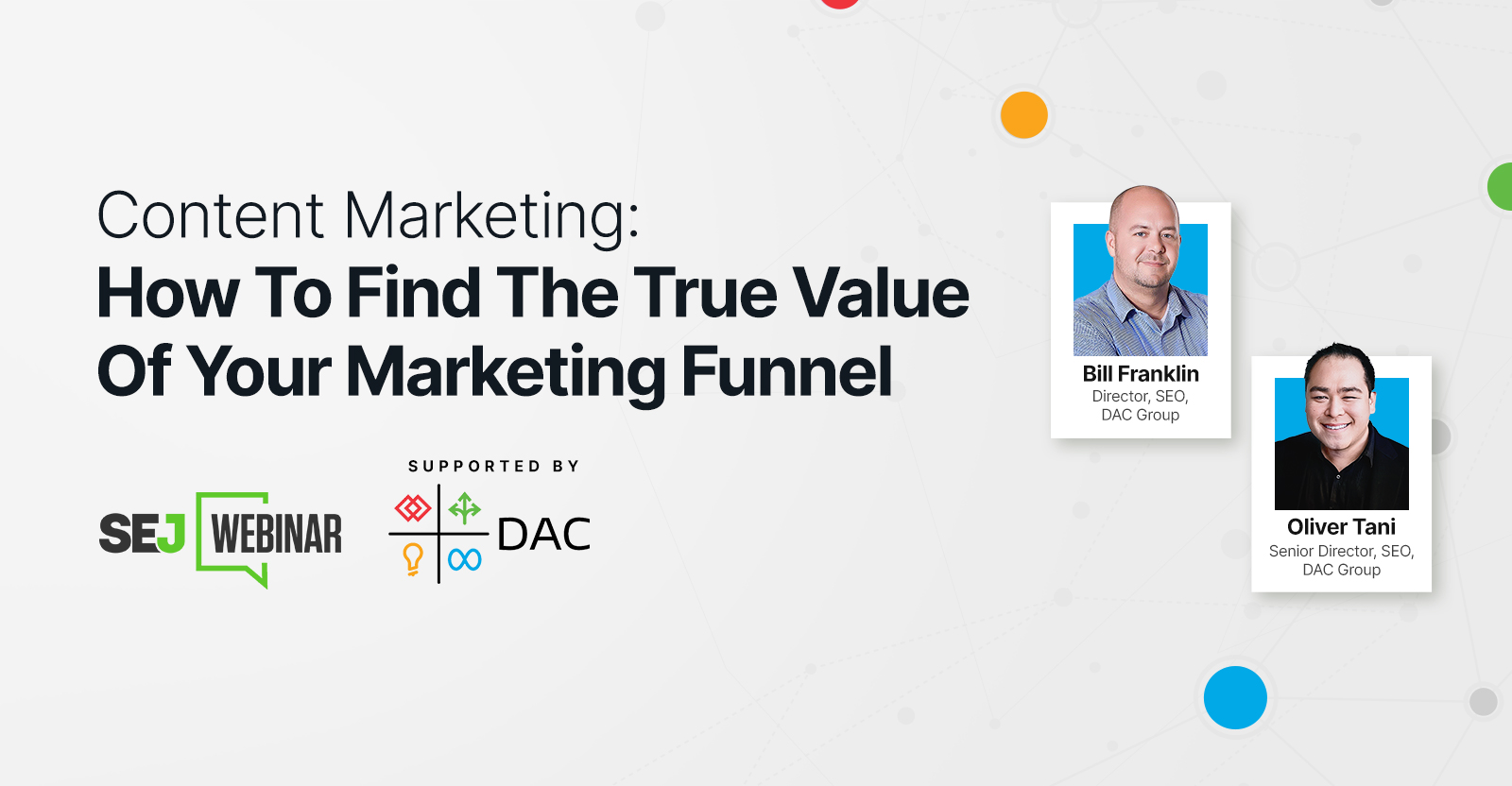SEO
Plugins, Tips & Proven Tactics

WordPress powers 39.5% of the world’s websites. As a leader in digital experiences, WordPress currently runs some of the most prominent websites like Sony, Microsoft, TechCrunch, and more.
Enterprise businesses require a scalable, credible, and reliable website to earn top domain authority and stay competitive.
While many organizations have turned to expensive solutions that often run up the budget and offer limited support, better options exist, like WordPress.
What started as a blogging platform ten years ago, WordPress is now the most popular content management system globally. With over 30 million enterprise WordPress websites live, the platform has grown to 65.2% CMS market share and continues to evolve year over year.
So, what makes WordPress suitable for enterprise businesses? There are many benefits – but at the top is how it can contribute to your SEO strategy to build trustworthiness and credibility in search results.
Let’s dig into all the top reasons WordPress is right for your enterprise and the tips you need to know to get started.
Is WordPress Good For Enterprises?
Since WordPress is open source software, your business has access to endless designers, developers, and specialized agencies, on top of a massive community that is all willing to collaborate and troubleshoot.
Advertisement
Continue Reading Below
With millions of WordPress websites live, the user community allows you to leverage best practices and implement them within your own system – instead of relying on inconsistent customer service or a limited FAQ page from closed-off systems.
Here are a few reasons why WordPress is great for enterprises:
- Ongoing support as opposed to proprietary systems that provide more flexibility and customization.
- Robust content editing experience with WordPress Gutenberg and accessibility standards.
- High-level security that keeps you protected against cyberattacks.
- Scalable infrastructure with consistent themes and plugins to help reach your goals.
- Huge costs savings by not having to pay hefty licensing costs compared to competitors like Adobe, Magento, and HubSpot.
WordPress is designed to stay and support enterprises.
Developers have downloaded over 81 million versions of WordPress. They have also created over 59,000 plugins and 9,000 themes. This is a testament to the core WordPress development team’s ability to improve the platform and meet modern business needs.
WordPress Benefits For Your Enterprise SEO Strategy
SEO is an essential part of your business’s digital strategy. To drive qualified website traffic, you need to ensure your content management system can handle the visibility and searchability you need to scale.
Advertisement
Continue Reading Below
Luckily for you, WordPress SEO is well-optimized to help you increase user engagement and boost rankings in SERPs.
Not only does it include several built-in features that help you better optimize your site, but there are several plugins to establish authority much easier.
Check out these nine WordPress SEO highlights:
- Permalinks: Customize your permalinks with targeted keywords to increase your CTR rate.
- Metadata: Automatically add title and meta description to every post or page on your website to improve your position.
- Images: Optimize your images by using keywords in the ALT text and improve your page speed by editing the size – not to mention 20% of all U.S. web searches happen on Google Images!
- User experience: Develop a well-designed site that enhances the user experience to increase pageviews, conversions, and session times.
- Site speed: Select the right themes and plugins that help you maintain a fast-loading time.
- Mobile-friendly: Use a mobile responsive theme to ensure it’s the same quality as the desktop version for a better user experience.
- Social media: Increase your brand visibility by including social media share and follow buttons on your website.
- Integration: Seamlessly integrate your WordPress site with other software like G Suite, Google Analytics, ConvertKit, and more.
When it comes to SEO, WordPress has all the tools you need to optimize your enterprise website with reliability and scalability.
Top 7 WordPress Plugins And Tools To Help You Become An SEO Rockstar
With 75% of people never going beyond the first Google search page, having an optimized site is an absolute must.
What’s the most significant way WordPress boosts your SEO rankings? Plugins.
WordPress plugins and tools optimize your site to boost SEO efforts and improve site security, performance, and speed.
But, with so many different plugins and tools in the market today – how do you choose the right ones that will improve your site’s visibility?
To help you avoid a SEO disaster, let’s take a look at the top WordPress tools and plugins for search optimization.
1. All in One SEO (AIOSEO)
Made popular by over two million users, AIOSEO offers a comprehensive toolkit and setup wizard for you to establish SEO settings for your website quickly. The checklist includes features like meta tag generators, titles, descriptions, rich snippet schema markup, and XML sitemaps.
For tech-savvy users, AIOSEO gives you complete control of Robosts.txt, local SEO, RSS videos, video and photo optimizations. It also allows enterprises to assign user roles to employees or contractors.
2. BrightEdge
BrightEdge provides AI-powered data-driven solutions to help you manage your SEO and content performance to convert more users into customers.
You can leverage BrightEdge throughout every stage of content optimization: discovering your target audience’s search demand, creating impactful content, and measuring results to scale.
Advertisement
Continue Reading Below
With powerful data insights like share of voice, opportunity forecasting, and ContentIQ your content is more likely to capture your audience’s attention and boost SEO efforts.
3. Semrush
As one of the best SEO tools in the market, Semrush allows you to find all the organic keywords and search terms that your website can rank. It also provides a competitive analysis of how your competitors rank, so you know how to gain an edge over their SEO strategy.
With Semrush’s Writing Assistant Tool, you can also improve your existing WordPress content with targeted focus keywords to help you make the top 10 results.
4. Yoast SEO
Yoast SEO lets you easily update descriptions, titles, and social media images throughout your website. With a user-friendly platform, Yoast SEO automatically creates an XML sitemap to make it easier for search engines to crawl your website and import data from other plugins.
You also have complete control of your site breadcrumbs and premium loading times.
Advertisement
Continue Reading Below
5. Ahrefs
Ahrefs is an all-in-one SEO tool that helps optimize your website, analyze industry content, and study your customer’s top keywords to help you improve.
With Ahrefs, you can track your ranking progress and learn from your competitor’s content to deliver a high-ranking website that builds authority.
Additionally, Ahrefs provides enterprise-level support with unique features like multiple user seats, personalized customer support, daily updates, and more to help your business grow globally.
6. NitroPack
With over one million websites using NitroPack, it’s safe to say that performance plugins can positively impact your SEO presence. NitroPack helps increase your Speed Score by 69% and improves your Core Web Vitals you can provide a better experience to users.
It provides advanced features like caching, built-in CDN, and HTML optimization in a user-friendly platform.
7. MonsterInsights
Instead of relying on SEO assumptions, MonsterInsights provides you with all the insights you need to improve search rankings by connecting Google Analytics to your WordPress site.
Advertisement
Continue Reading Below
MonsterInsights shows you top content, how users interact on your site, and connects ecommerce SEO.
Also, MonsterInsights provides over 100 data points to help you make better marketing decisions through real-time analytics.
More Tried And True WordPress SEO Best Practices For Enterprises
With 40 to 60 billion estimated Google searches in the U.S each month, your enterprise needs to focus on an on-page and off-page SEO strategy.
 Image created by author, December 2021
Image created by author, December 2021On-page SEO includes creating valuable content, adding targeted keywords, and having metadata on every website page or post.
Advertisement
Continue Reading Below
On the other hand, off-page SEO involves building links on third-party websites to improve your site’s trustworthiness, relevance, and authority.
To help you get started, here are a few additional on and off-page SEO best practices for your WordPress site:
- Use a dedicated focus keyword for each page and include it in key places like your titles, first paragraph, and the URL.
- Write valuable and authentic content that not only delights your users but signals to search engines that you’re a credible enterprise.
- Choose a theme that supports SEO best practices, like headings or title tags, and offers your users a simple customer experience.
- Select a plugin that develops an automatic Google XML sitemap to help search bots easily crawl your website.
- Start building backlinks with other high-ranking websites through content partnerships, guest blogging, and directory profiles.
- Protect your site against third-party attacks by using SSL and HTTPS for enhanced WordPress enterprise security.
- Take advantage of local SEO features by creating a Google My Business and using localized keywords in your content.
Now, search engines keep getting more intelligent, and for enterprises to improve rankings, you need to keep up.
Using the right plugins is a great start, but staying on top of the algorithms, monitoring your traffic daily, and implementing SEO best practices will help ensure you drive users back to your website.
Scale Your WordPress Enterprise Website With SEO
Is WordPress enterprise-ready?
Combined with powerful plugins and themes, WordPress’s content management system is more than ready to handle the needs of a complex enterprise website. With WordPress, you can scale your website with flexible infrastructure and reliable SEO features.
Advertisement
Continue Reading Below
WordPress is one of the best platforms for SEO. Not only does the system provide SEO features, but the plugins available make it easy for your website to start building authority and boost your overall rankings.
With a higher ranking, you’re more likely to drive the right traffic back to your site that converts into future customers.
More resources:
Featured Image: RoBird/Shutterstock
SEO
Measuring Content Impact Across The Customer Journey

Understanding the impact of your content at every touchpoint of the customer journey is essential – but that’s easier said than done. From attracting potential leads to nurturing them into loyal customers, there are many touchpoints to look into.
So how do you identify and take advantage of these opportunities for growth?
Watch this on-demand webinar and learn a comprehensive approach for measuring the value of your content initiatives, so you can optimize resource allocation for maximum impact.
You’ll learn:
- Fresh methods for measuring your content’s impact.
- Fascinating insights using first-touch attribution, and how it differs from the usual last-touch perspective.
- Ways to persuade decision-makers to invest in more content by showcasing its value convincingly.
With Bill Franklin and Oliver Tani of DAC Group, we unravel the nuances of attribution modeling, emphasizing the significance of layering first-touch and last-touch attribution within your measurement strategy.
Check out these insights to help you craft compelling content tailored to each stage, using an approach rooted in first-hand experience to ensure your content resonates.
Whether you’re a seasoned marketer or new to content measurement, this webinar promises valuable insights and actionable tactics to elevate your SEO game and optimize your content initiatives for success.
View the slides below or check out the full webinar for all the details.
SEO
How to Find and Use Competitor Keywords

Competitor keywords are the keywords your rivals rank for in Google’s search results. They may rank organically or pay for Google Ads to rank in the paid results.
Knowing your competitors’ keywords is the easiest form of keyword research. If your competitors rank for or target particular keywords, it might be worth it for you to target them, too.
There is no way to see your competitors’ keywords without a tool like Ahrefs, which has a database of keywords and the sites that rank for them. As far as we know, Ahrefs has the biggest database of these keywords.
How to find all the keywords your competitor ranks for
- Go to Ahrefs’ Site Explorer
- Enter your competitor’s domain
- Go to the Organic keywords report
The report is sorted by traffic to show you the keywords sending your competitor the most visits. For example, Mailchimp gets most of its organic traffic from the keyword “mailchimp.”


Since you’re unlikely to rank for your competitor’s brand, you might want to exclude branded keywords from the report. You can do this by adding a Keyword > Doesn’t contain filter. In this example, we’ll filter out keywords containing “mailchimp” or any potential misspellings:


If you’re a new brand competing with one that’s established, you might also want to look for popular low-difficulty keywords. You can do this by setting the Volume filter to a minimum of 500 and the KD filter to a maximum of 10.


How to find keywords your competitor ranks for, but you don’t
- Go to Competitive Analysis
- Enter your domain in the This target doesn’t rank for section
- Enter your competitor’s domain in the But these competitors do section


Hit “Show keyword opportunities,” and you’ll see all the keywords your competitor ranks for, but you don’t.


You can also add a Volume and KD filter to find popular, low-difficulty keywords in this report.


How to find keywords multiple competitors rank for, but you don’t
- Go to Competitive Analysis
- Enter your domain in the This target doesn’t rank for section
- Enter the domains of multiple competitors in the But these competitors do section


You’ll see all the keywords that at least one of these competitors ranks for, but you don’t.


You can also narrow the list down to keywords that all competitors rank for. Click on the Competitors’ positions filter and choose All 3 competitors:


- Go to Ahrefs’ Site Explorer
- Enter your competitor’s domain
- Go to the Paid keywords report


This report shows you the keywords your competitors are targeting via Google Ads.
Since your competitor is paying for traffic from these keywords, it may indicate that they’re profitable for them—and could be for you, too.
You know what keywords your competitors are ranking for or bidding on. But what do you do with them? There are basically three options.
1. Create pages to target these keywords
You can only rank for keywords if you have content about them. So, the most straightforward thing you can do for competitors’ keywords you want to rank for is to create pages to target them.
However, before you do this, it’s worth clustering your competitor’s keywords by Parent Topic. This will group keywords that mean the same or similar things so you can target them all with one page.
Here’s how to do that:
- Export your competitor’s keywords, either from the Organic Keywords or Content Gap report
- Paste them into Keywords Explorer
- Click the “Clusters by Parent Topic” tab


For example, MailChimp ranks for keywords like “what is digital marketing” and “digital marketing definition.” These and many others get clustered under the Parent Topic of “digital marketing” because people searching for them are all looking for the same thing: a definition of digital marketing. You only need to create one page to potentially rank for all these keywords.


2. Optimize existing content by filling subtopics
You don’t always need to create new content to rank for competitors’ keywords. Sometimes, you can optimize the content you already have to rank for them.
How do you know which keywords you can do this for? Try this:
- Export your competitor’s keywords
- Paste them into Keywords Explorer
- Click the “Clusters by Parent Topic” tab
- Look for Parent Topics you already have content about
For example, if we analyze our competitor, we can see that seven keywords they rank for fall under the Parent Topic of “press release template.”


If we search our site, we see that we already have a page about this topic.


If we click the caret and check the keywords in the cluster, we see keywords like “press release example” and “press release format.”


To rank for the keywords in the cluster, we can probably optimize the page we already have by adding sections about the subtopics of “press release examples” and “press release format.”
3. Target these keywords with Google Ads
Paid keywords are the simplest—look through the report and see if there are any relevant keywords you might want to target, too.
For example, Mailchimp is bidding for the keyword “how to create a newsletter.”


If you’re ConvertKit, you may also want to target this keyword since it’s relevant.
If you decide to target the same keyword via Google Ads, you can hover over the magnifying glass to see the ads your competitor is using.


You can also see the landing page your competitor directs ad traffic to under the URL column.


Learn more
Check out more tutorials on how to do competitor keyword analysis:
SEO
Google Confirms Links Are Not That Important

Google’s Gary Illyes confirmed at a recent search marketing conference that Google needs very few links, adding to the growing body of evidence that publishers need to focus on other factors. Gary tweeted confirmation that he indeed say those words.
Background Of Links For Ranking
Links were discovered in the late 1990’s to be a good signal for search engines to use for validating how authoritative a website is and then Google discovered soon after that anchor text could be used to provide semantic signals about what a webpage was about.
One of the most important research papers was Authoritative Sources in a Hyperlinked Environment by Jon M. Kleinberg, published around 1998 (link to research paper at the end of the article). The main discovery of this research paper is that there is too many web pages and there was no objective way to filter search results for quality in order to rank web pages for a subjective idea of relevance.
The author of the research paper discovered that links could be used as an objective filter for authoritativeness.
Kleinberg wrote:
“To provide effective search methods under these conditions, one needs a way to filter, from among a huge collection of relevant pages, a small set of the most “authoritative” or ‘definitive’ ones.”
This is the most influential research paper on links because it kick-started more research on ways to use links beyond as an authority metric but as a subjective metric for relevance.
Objective is something factual. Subjective is something that’s closer to an opinion. The founders of Google discovered how to use the subjective opinions of the Internet as a relevance metric for what to rank in the search results.
What Larry Page and Sergey Brin discovered and shared in their research paper (The Anatomy of a Large-Scale Hypertextual Web Search Engine – link at end of this article) was that it was possible to harness the power of anchor text to determine the subjective opinion of relevance from actual humans. It was essentially crowdsourcing the opinions of millions of website expressed through the link structure between each webpage.
What Did Gary Illyes Say About Links In 2024?
At a recent search conference in Bulgaria, Google’s Gary Illyes made a comment about how Google doesn’t really need that many links and how Google has made links less important.
Patrick Stox tweeted about what he heard at the search conference:
” ‘We need very few links to rank pages… Over the years we’ve made links less important.’ @methode #serpconf2024″
Google’s Gary Illyes tweeted a confirmation of that statement:
“I shouldn’t have said that… I definitely shouldn’t have said that”
Why Links Matter Less
The initial state of anchor text when Google first used links for ranking purposes was absolutely non-spammy, which is why it was so useful. Hyperlinks were primarily used as a way to send traffic from one website to another website.
But by 2004 or 2005 Google was using statistical analysis to detect manipulated links, then around 2004 “powered-by” links in website footers stopped passing anchor text value, and by 2006 links close to the words “advertising” stopped passing link value, links from directories stopped passing ranking value and by 2012 Google deployed a massive link algorithm called Penguin that destroyed the rankings of likely millions of websites, many of which were using guest posting.
The link signal eventually became so bad that Google decided in 2019 to selectively use nofollow links for ranking purposes. Google’s Gary Illyes confirmed that the change to nofollow was made because of the link signal.
Google Explicitly Confirms That Links Matter Less
In 2023 Google’s Gary Illyes shared at a PubCon Austin that links were not even in the top 3 of ranking factors. Then in March 2024, coinciding with the March 2024 Core Algorithm Update, Google updated their spam policies documentation to downplay the importance of links for ranking purposes.
The documentation previously said:
“Google uses links as an important factor in determining the relevancy of web pages.”
The update to the documentation that mentioned links was updated to remove the word important.
Links are not just listed as just another factor:
“Google uses links as a factor in determining the relevancy of web pages.”
At the beginning of April Google’s John Mueller advised that there are more useful SEO activities to engage on than links.
Mueller explained:
“There are more important things for websites nowadays, and over-focusing on links will often result in you wasting your time doing things that don’t make your website better overall”
Finally, Gary Illyes explicitly said that Google needs very few links to rank webpages and confirmed it.
I shouldn’t have said that… I definitely shouldn’t have said that
— Gary 鯨理/경리 Illyes (so official, trust me) (@methode) April 19, 2024
Why Google Doesn’t Need Links
The reason why Google doesn’t need many links is likely because of the extent of AI and natural language undertanding that Google uses in their algorithms. Google must be highly confident in its algorithm to be able to explicitly say that they don’t need it.
Way back when Google implemented the nofollow into the algorithm there were many link builders who sold comment spam links who continued to lie that comment spam still worked. As someone who started link building at the very beginning of modern SEO (I was the moderator of the link building forum at the #1 SEO forum of that time), I can say with confidence that links have stopped playing much of a role in rankings beginning several years ago, which is why I stopped about five or six years ago.
Read the research papers
Authoritative Sources in a Hyperlinked Environment – Jon M. Kleinberg (PDF)
The Anatomy of a Large-Scale Hypertextual Web Search Engine
Featured Image by Shutterstock/RYO Alexandre
-

 PPC4 days ago
PPC4 days ago19 Best SEO Tools in 2024 (For Every Use Case)
-

 MARKETING7 days ago
MARKETING7 days agoWill Google Buy HubSpot? | Content Marketing Institute
-
SEARCHENGINES7 days ago
Daily Search Forum Recap: April 16, 2024
-

 SEO7 days ago
SEO7 days agoGoogle Clarifies Vacation Rental Structured Data
-

 MARKETING6 days ago
MARKETING6 days agoStreamlining Processes for Increased Efficiency and Results
-
SEARCHENGINES6 days ago
Daily Search Forum Recap: April 17, 2024
-

 PPC7 days ago
PPC7 days agoHow to Collect & Use Customer Data the Right (& Ethical) Way
-

 SEO6 days ago
SEO6 days agoAn In-Depth Guide And Best Practices For Mobile SEO
















You must be logged in to post a comment Login